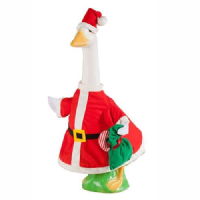Most Accessed Podcast Episodes of 2023
Writing about web page https://exchanges.warwick.ac.uk/index.php/exchanges/podcast
Looking back on the most popular podcast episodes of 2023 from the Exchanges Discourse reveals a few surprises.
To paraphrase Shatner [1] ‘When it was 2023 it was a very good year. It was a very good year for author interview podcast episodes and soft academic chat’.
In 2023 I produced 13 new episodes of the Exchanges Discourse podcast, representing our fourth (!) production season. I know, I’m as surprised as you are that we’ve been going this long now - but also delighted too. Since we kicked off in the high-pandemic year [2] of 2020 with the intention to create a surrogate for the kinds of conversations we’d been having behind the scenes with authors – but were less able to enjoy so easily during the extended remote working period. Unlike a lot of things which arose during lockdown – banana bread, clapping for the NHS, panicking over the food shopping [3] – the Exchanges Discourse podcast is still alive and well.
Back in 2022 we produced 17 episodes [4] and 6hrs 49 minutes of content over the twelve months. Now you might think that with fewer episodes in 2023, this means there was less content for listeners to enjoy. Slightly less variety of voices, I’ll perhaps give you. However, checking on the episode statistics we clocked in with a grand total of 6hrs and 39 minutes of content produced - most which wasn't me talking! Hence, 2023’s podcast episodes were nothing at which to be sneezed. [5] Now if I were to make one behind the scenes observation, it concerns those conversations which continued followed the end recording. A lot of our guests, once we turned the mic off had a lot more interesting things to say - and while I enjoyed every minute, I wish I'd managed to capture them for our listeners to enjoy. So, my goal for 2024 is to try and let more episodes run longer this way.
Anyway, all this aside – what you want to know in this post are which were the most popular episodes we published this past year. As always, we pick a top five and with four episodes appearing in December I’m was curious myself to see if any of these made it into the list when I ran the stats:
| Rank | Title | Duration | Published |
| 1 | Across Two Professional Worlds: In Conversation with Intissar Haddiya | 00:24:34 | August 2023 |
| 2 | Creating Critical Reflection Articles: The What, The Why, The How and The Where | 00:23:58 | January 2023 |
| 3 | Environmental Humanities & Transdisciplinary Research: In Conversation with Justin Westgate | 00:31:32 | June 2023 |
| 4 | Presidential History and Digital Pedagogies: In Conversation with Rebecca Stone | 00:43:60 | March 2023 |
| 5= | ChatGPT, Reviewers from Hell & Linguistic Challenges: In Conversation with Beth Montague-Hellen | 00:27:34 | December 2023 |
| 5= | Sustainability, Batteries & Pringle Cans: In Conversation with Jean Marshall | 00:25:18 | December 2023 |
| 5= | Crossing the Creative Frontier: In Conversation with Sonakshi Srivastava | 00:34:35 | June 2023 |
Well there you go - and yes - a three way tie there for 5th place, with two of those being podcasts we launched in December! How especially gratifying to see them there, meaning a real potential for them to keep climbing up the ranks. I am personally a little delighted to see what occupies our number 1 slot, as it also happened to be the 50th episode of the podcast – which was a minor milestone all of its own. I think the one surprise for me is that my solo episode on creating critical reflections has proved so popular. I suspect, given we’ve two special issues which are critical reflection focussed, this episode likely had a bit of a boost from authors planning to submit to them. I can’t tell for certain, although I know one or two authors have mentioned listening to it ahead of submission - so there's some evidence to support this assumption.
Anyway, what was your favourite episode in our top 5? Let us know if it was, or even if it wasn’t, in the comments below!
And now on to Season 5 - which I start recording today with an author interview again. Do join me.
---
Endnotes
[1] I know it’s by Sinatra originally, but I’ve only ever listened to Kirk’s version. It’s rather good. But no, I shan’t be performing it in karaoke any time soon.
[2] Rather than the pre-vaccination endemic COVID-19 pandemic we’re still experiencing.
[3] UK inflation being what it is, I don’t think this one’s gone away – it’s just evolved into a more fiscal than existential mode.
[4] 15 author interviews, two solo performances by myself
[5] For 2023 the average episode length is 30 minutes 41 seconds, for 2022 it was only 24 minutes 3 seconds – so we talked a lot more this year just passed.
 Gareth Johnson
Gareth Johnson

 Please wait - comments are loading
Please wait - comments are loading



 Loading…
Loading…

